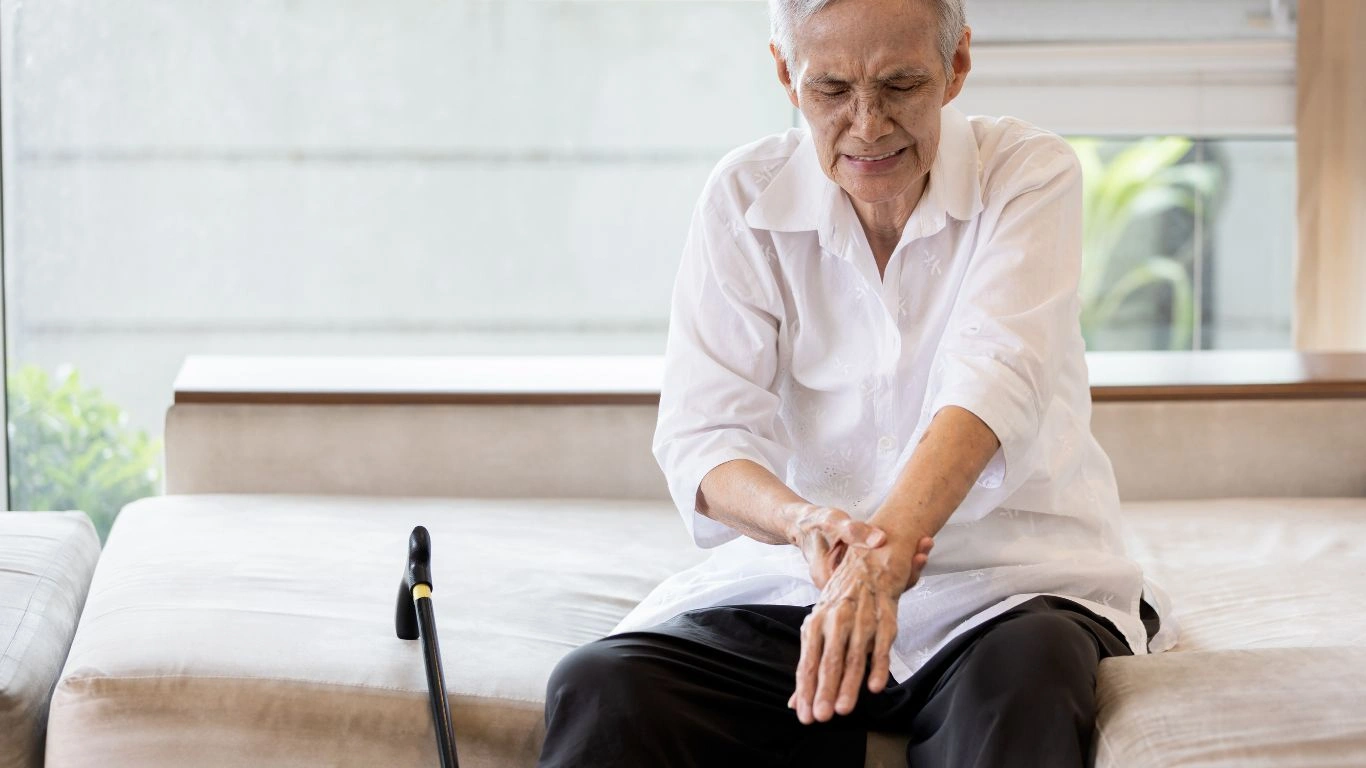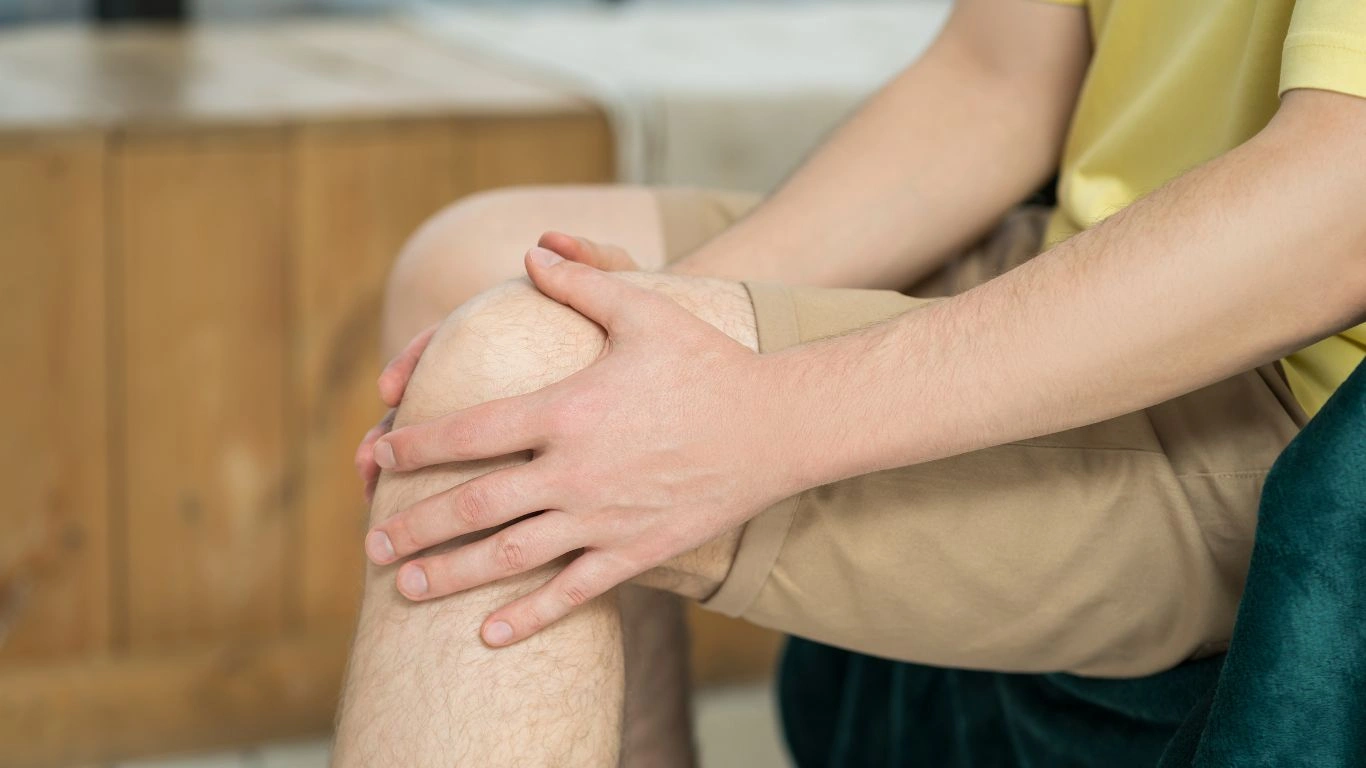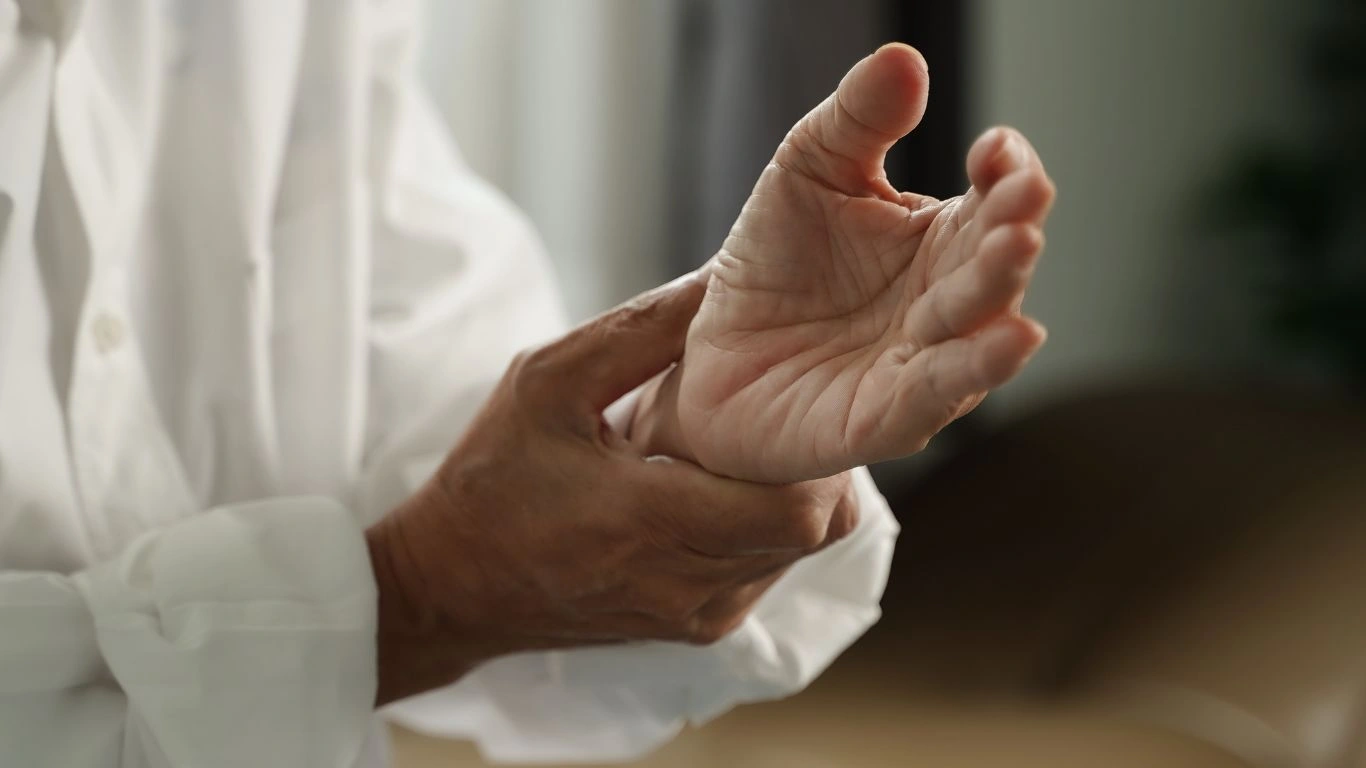How to Prepare for a Rheumatoid Arthritis Flare-Up: Essential Tips for Relief
If you’re living with rheumatoid arthritis (RA), you know that flare-ups can hit without much warning — turning a normal day into a painful struggle. How to prepare for a rheumatoid arthritis flare-up isn’t just about managing pain when it happens; it’s about anticipating those tough days and arming yourself with strategies to lessen their impact. As a Rheumatology nurse practitioner, I’ve seen firsthand how a little preparation can make a world of difference for patients navigating the unpredictability of RA.
Flare-ups are the enemy of stability in RA. They can disrupt everything from your ability to work and exercise, to simple joys like cooking or even sleeping well. But here’s the good news: while we can’t always stop flare-ups from happening, we absolutely can be proactive. That means recognizing early warning signs, adjusting lifestyle habits, and having a solid plan in place to ride the storm with less damage to your body and spirit.
Understanding What Triggers Rheumatoid Arthritis Flare-Ups

One of the first steps in how to prepare for a rheumatoid arthritis flare-up is understanding the triggers. RA flare-ups can be unpredictable, but they often follow certain patterns or events. In my years working with patients, these are the most common culprits:
- Stress: Emotional or physical stress is a big one. Stress hormones can inflame your joints further, which is why managing stress is so critical.
- Infections: Even a mild cold or urinary tract infection can set off a flare. Your immune system’s response to the infection can inadvertently trigger joint inflammation.
- Overexertion: It’s a tricky balance, but pushing your body too hard—especially on days when you already feel “off”—can worsen symptoms.
- Weather changes: Many patients report flare-ups linked to cold, damp weather or sudden changes in barometric pressure.
- Skipping medications or treatments: Consistency is key. Missing doses can let inflammation spiral out of control.
From my clinical experience, the best way to combat these triggers is to keep a detailed symptom diary. Write down what you’re doing, how you’re feeling, what you ate, your stress levels—anything that feels relevant. Over time, this can help you spot patterns and make lifestyle adjustments that reduce flare frequency.
Early Warning Signs: Spotting a Flare Before It Hits Hard

Knowing the early warning signs of a rheumatoid arthritis flare can save you from days of unnecessary suffering. It’s a bit like knowing the weather forecast—you can’t stop the storm, but you can grab your umbrella before the rain pours. Here are some signs I tell my patients to watch out for:
- Increased joint stiffness, especially in the morning: This stiffness lasts longer than usual and makes movement harder.
- Swelling and warmth around joints: Joints feel puffy and tender to the touch, often warmer than normal.
- Fatigue that feels different: Not just being tired but a deep, bone-weary exhaustion that creeps in even with minimal activity.
- Low-grade fever: Sometimes a slight rise in temperature can signal systemic inflammation.
- Reduced range of motion: Joints don’t move as freely as before, sometimes accompanied by pain during movement.
When you start noticing these symptoms, that’s your cue to shift gears. Don’t push through the discomfort like you might on a normal day. Instead, listen to your body and consider adjusting your schedule to include more rest and less strain.
Practical Steps You Can Take Right Now

So, what does preparation look like on a daily basis? I always tell my patients that having a plan is empowering. Here are a few things you can start doing today to get ahead of flare-ups:
- Stick to your medication routine: Never underestimate the power of consistency with your prescribed treatments. If you’re struggling with side effects or adherence, reach out to your healthcare provider.
- Maintain a balanced diet: Focus on anti-inflammatory foods like leafy greens, fatty fish, and nuts. Avoid processed foods and excess sugar that can fuel inflammation.
- Incorporate gentle exercise: Activities like swimming, yoga, or walking can help keep joints flexible and muscles strong without overloading your system.
- Practice stress reduction techniques: Whether it’s meditation, deep breathing, or just taking time for a hobby you love, managing stress has huge benefits for your RA.
- Keep communication open with your care team: If you notice early flare signs, don’t hesitate to call your rheumatologist or nurse practitioner for advice.
From my hands-on experience, patients who take these small but consistent steps often report feeling more in control—even when flares do happen. That sense of control can make all the difference, helping you manage pain and maintain quality of life.
Creating a Flare-Up Emergency Kit

One of the best pieces of advice I give to people living with RA is to prepare a flare-up emergency kit. Think of it as your go-to toolbox for those challenging days when everything feels overwhelming. From my experience as a Rheumatology nurse practitioner, having everything you need in one place can reduce stress and help you feel more in control when a flare strikes.
Here’s what I typically recommend including in your kit:
- Medications: Make sure you have an extra supply of your prescribed pain relievers, anti-inflammatories, and any other meds your doctor recommends during flares.
- Cold and heat packs: Many patients find alternating hot and cold therapy soothes stiff, inflamed joints. Keep reusable gel packs ready to go.
- Comfort aids: Items like cushioned gloves, wrist braces, or ergonomic tools can provide extra support and reduce strain during a flare.
- Hydration supplies: Dehydration can worsen symptoms, so having a water bottle and electrolyte mixes on hand is smart.
- Relaxation tools: Whether it’s a favorite book, a calming playlist, or a journal, having something to help calm your mind can ease the emotional toll of flares.
- Emergency contact info: Include numbers for your healthcare provider, pharmacy, and a trusted friend or family member who can assist if needed.
Personally, I tell patients that this kit isn’t just about physical care—it’s a small, tangible way to remind yourself that you’re prepared and capable, even when your body feels out of control. It’s like having a little safety net ready to catch you.
Adjusting Your Daily Routine During a Flare-Up

Once you recognize that a flare-up is on its way or already underway, it’s time to tweak your daily routine to protect your joints and preserve your energy. This part of how to prepare for a rheumatoid arthritis flare-up is about being gentle with yourself and making practical changes to minimize damage and discomfort.
Here are some tips I often share with my patients that help them manage flares more smoothly:
- Prioritize rest: It’s okay to slow down. Resting doesn’t mean you’re weak—it’s essential for healing and reducing inflammation.
- Break tasks into smaller steps: If house chores or work feels overwhelming, divide tasks into bite-sized chunks. Taking frequent breaks can prevent overexertion.
- Use assistive devices: Tools like jar openers, reachers, and ergonomic kitchen gadgets can reduce strain on inflamed joints.
- Maintain hydration and nutrition: Flare-ups can sap your appetite or energy. Focus on nutrient-dense meals and staying hydrated, even if you’re not very hungry.
- Communicate your needs: Let family, friends, or coworkers know what you’re going through so they can offer support or adjust expectations.
- Gentle movement: If possible, light stretching or gentle range-of-motion exercises can help prevent joints from stiffening up completely.
In my clinical practice, I’ve noticed that patients who accept the need for adjustments—rather than fighting their body—tend to recover more quickly and with less frustration. Remember, this phase is temporary, and treating yourself with kindness makes all the difference.
Mindset Matters: How Mental Health Influences Flare-Ups

Living with a chronic condition like RA is a marathon, not a sprint. One thing I always emphasize is that your mental and emotional health are deeply connected to your physical well-being. The way you respond mentally to a flare-up can influence how you feel physically, and vice versa.
Stress, anxiety, and frustration can amplify pain perception and inflammation, creating a vicious cycle. So, part of preparing for a rheumatoid arthritis flare-up includes nurturing your mental health. Here are some approaches I often recommend:
- Mindfulness and meditation: Even a few minutes a day can help calm your nervous system and reduce stress hormones.
- Connecting with support groups: Sharing experiences with others who understand what you’re going through can be incredibly validating and encouraging.
- Journaling: Writing down your feelings, symptoms, or even gratitude can help process emotions and shift your focus.
- Professional help: Don’t hesitate to seek counseling or therapy if feelings of depression or anxiety become overwhelming. Mental health professionals can provide tools tailored to your situation.
In my work, I’ve witnessed patients transform their flare-up experiences by shifting how they relate to their pain and uncertainty. It’s not about ignoring the struggle but learning how to coexist with it in a way that feels manageable.
When to Seek Medical Help During a Flare-Up

Knowing how to prepare for a rheumatoid arthritis flare-up includes understanding when it’s time to call your healthcare provider. From my experience as a Rheumatology nurse practitioner, many people hesitate to seek medical advice during flares, thinking it’s just “part of the disease.” But some signs shouldn’t be ignored, and timely intervention can prevent complications.
Here are a few situations when you absolutely should contact your rheumatologist or primary care provider:
- Severe joint pain or swelling that doesn’t improve: If your symptoms worsen or last longer than usual despite your usual flare management, it’s time to get checked.
- Signs of infection: Fever, chills, redness spreading beyond the joint, or unexplained fatigue might indicate an infection, which can be serious in people with RA.
- New or worsening symptoms: If you experience symptoms like chest pain, shortness of breath, or sudden weakness, seek immediate medical attention.
- Medication concerns: If you’re unsure about adjusting your medications or notice side effects, don’t wait to discuss this with your doctor.
When you call your provider, be ready to describe your symptoms clearly: when they started, what makes them better or worse, and how they affect your daily life. From my perspective, good communication can help your healthcare team tailor treatment quickly and effectively.
Long-Term Strategies to Minimize Flare-Ups

Preparation doesn’t stop once the flare is over. In fact, some of the most important work happens in between flares—building habits and a lifestyle that minimize future episodes. This is where the marathon mindset really matters. From working with countless patients, I can tell you the difference between someone who feels perpetually at the mercy of their disease and someone who feels empowered often comes down to long-term strategies.
Here’s what I recommend to help keep flares less frequent and less intense:
- Stay consistent with your treatment plan: This means not only taking medications as prescribed but also keeping your follow-up appointments and discussing any changes with your care team.
- Keep moving safely: Regular, low-impact exercise tailored to your abilities strengthens muscles around your joints, improves flexibility, and boosts mood.
- Maintain a healthy weight: Extra weight puts more stress on joints and can increase inflammation, so a balanced diet and physical activity go hand in hand.
- Manage stress proactively: Incorporate relaxation techniques into your daily routine rather than only during flares—think of it as maintenance for your mental health.
- Sleep well: Quality sleep is a powerful anti-inflammatory tool. If RA pain disrupts your sleep, talk to your provider about strategies to improve it.
- Educate yourself: Understanding your disease helps you make better decisions and advocate for yourself. I always encourage patients to ask questions and stay informed.
Building these habits takes time and patience. I often remind my patients that every small step counts—whether it’s adding one extra minute of stretching or swapping a processed snack for a fresh fruit. These changes accumulate, making flare-ups less disruptive in the long run.
Empowering Yourself Through Knowledge and Support
RA can feel isolating, but you don’t have to face it alone. Part of how to prepare for a rheumatoid arthritis flare-up is building a strong support network—whether that’s family, friends, healthcare providers, or fellow patients. Sharing your journey can bring new insights, emotional relief, and practical tips.
One of the most rewarding parts of my job is watching patients grow into advocates for their own health. When you feel empowered by knowledge and supported by people who get it, managing RA becomes less about surviving and more about thriving.
Remember, flares don’t define you. Your resilience, your proactive care, and your willingness to adapt do. And I’m here cheering you on every step of the way.
References
Disclaimer
This article is intended for educational purposes only and does not replace professional medical advice, diagnosis, or treatment. Always consult your healthcare provider for advice tailored to your specific condition and before making any changes to your treatment plan.

Tarra Nugroho is a dedicated Nurse Practitioner with a strong foundation in family and preventive care. She brings both compassion and clinical expertise to her practice, focusing on patient-centered care and health education. As a contributor to Healthusias.com, Tarra translates medical knowledge into clear, empowering articles on topics like women’s health, chronic disease management, and lifestyle medicine. Her mission is simple: help people feel seen, heard, and informed—both in the clinic and through the content she creates. When she’s not caring for patients, Tarra enjoys weekend hikes, plant-based cooking, and curling up with a good health podcast.







